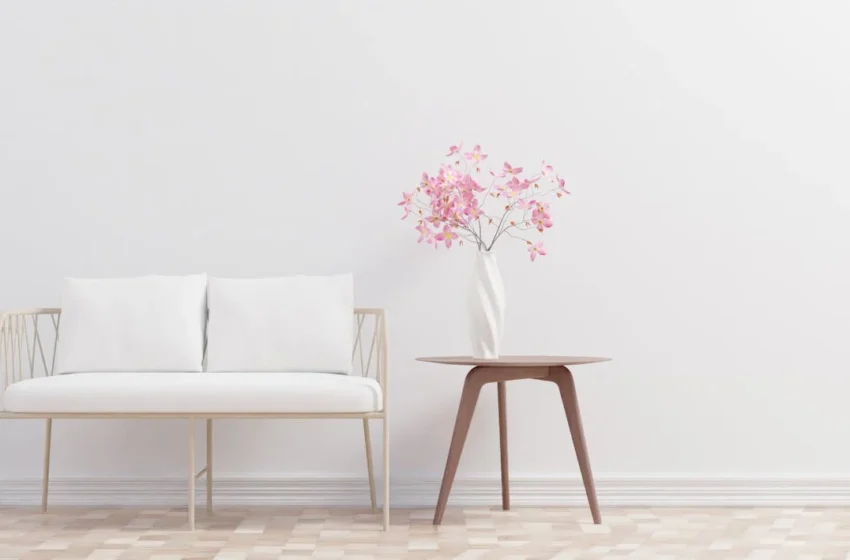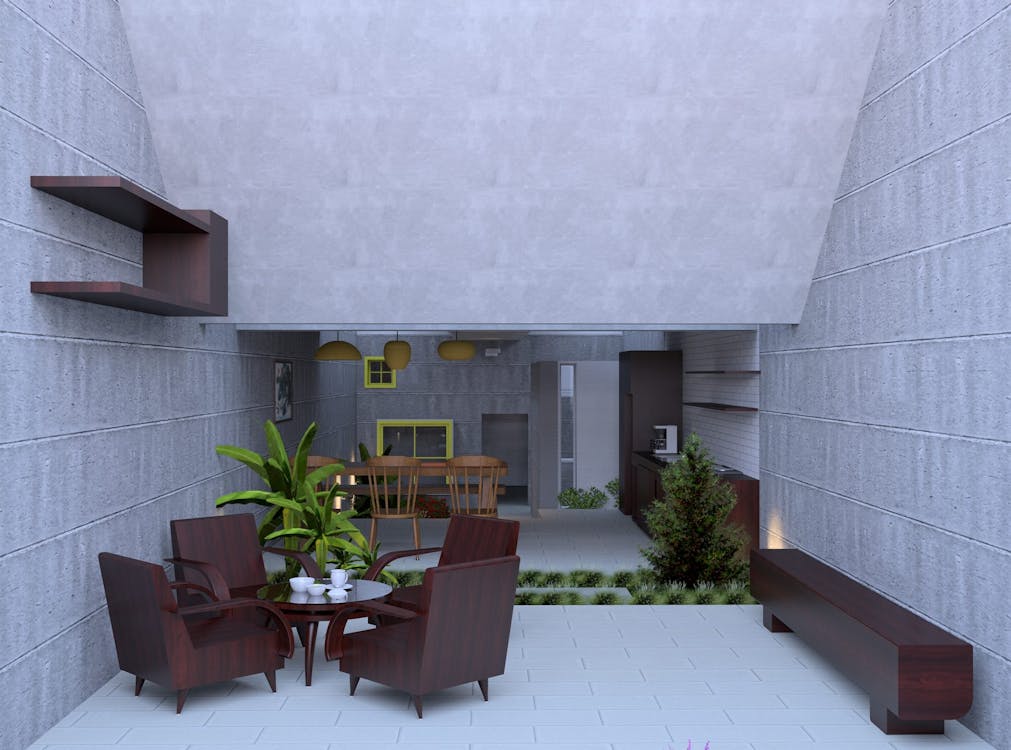
Living minimalist lifestyle: not only helps declutter your physical spaces but also your mind. The philosophy behind minimalist living emphasizes intentional choices about what we surround ourselves with. By focusing on essentials, a minimalist mindset reduces stress and enhances overall well-being. That is my goal on Becoming Minimalist: to intentionally promote simplicity in a world that needs to hear it. A minimalist living room that focuses on the essentials can help you to keep clutter at bay, come home to a calming space, and make whatever square footage you do have feel larger and airier. If you’re curious about, new to, or simply interested in learning more about minimalism, this is a great place to start. Below you’ll find various definitions of minimalism, the benefits, challenges, and real-life examples so you can decide if minimalism is right for you.
I can’t claim that my home is completely minimalist, but it surely isn’t cluttered, and most people I know would call it a pretty minimalist home. Embracing minimalism and decluttering doesn’t mean living with the bare minimum. The goal of becoming minimalist is to audit bad habits, downsize unnecessary belongings, and thoughtfully assess what adds value to your minimalist life. The true definition of minimalism lies in prioritizing things that bring meaning to your life and intentionally focusing on what matters most.
For example, on the floor of my kitchen/dining room area are just a few essentials: dining table (clear of any clutter), chairs, some counter stools, a high chair, a step stool for the kids. On the counters are only the toaster, coffee maker and microwave. Minimalist living rooms take a pared-back approach to furniture, color palettes, and decor, an approach that can be used to create a streamlined feel in any style of interior.
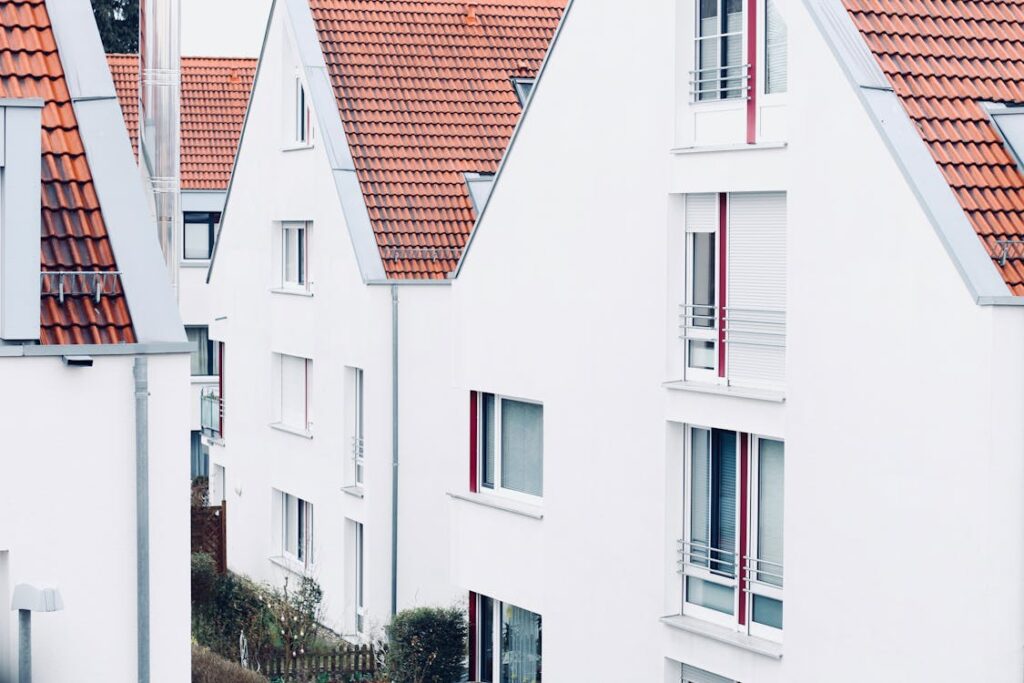
OUTLINE :
BODY
Benefits of a Minimalist Home
Less Stressful
Clutter is a form of visual distraction, and everything in our vision pulls at our attention at least a little. The less clutter, the less visual stress we have. A minimalist home is calming. So, decluttering your spaces is essential for a healthier life. By keeping a minimalist home, you help your body and mind function at their best, promoting well-being and freedom from mental clutter. This approach reflects the zen habits philosophy of finding calm through simplicity.
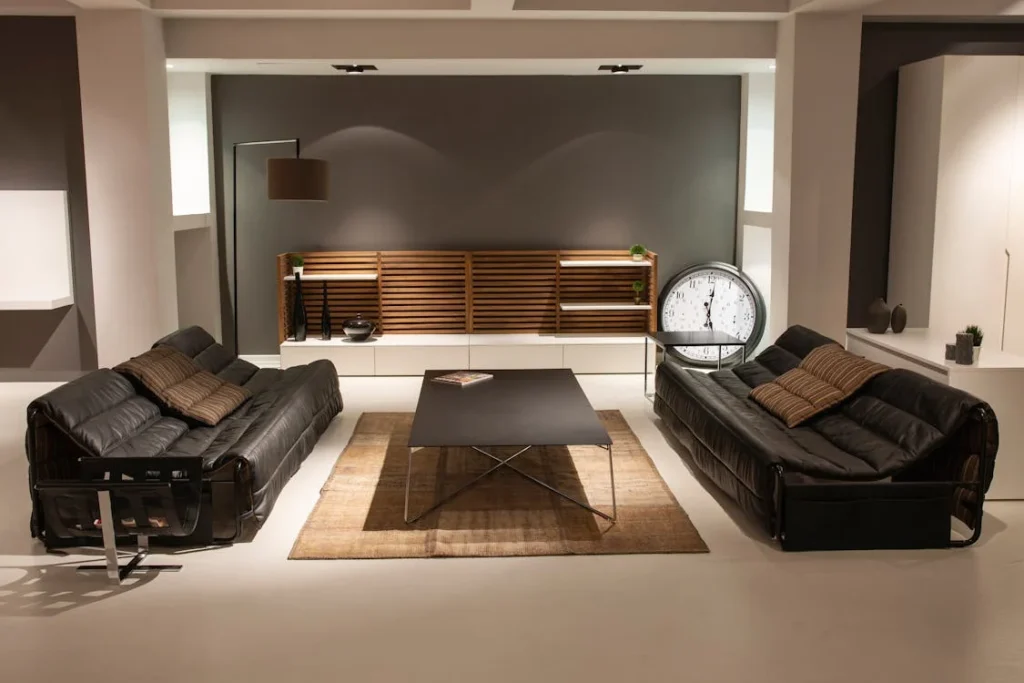
Improved collaboration
Arriving late for work because you lost track of your keys, or losing time searching through stacks of disorganized documents, are avoidable time-wasters. These bad habits could end up poorly reflecting your work ethic and reputation. The minimalist lifestyle teaches efficiency, helping you avoid wasting time looking for misplaced stuff.
More Appealing
Think about photos of homes that are cluttered, and photos of minimalist homes. The ones with almost nothing in them except some beautiful furniture, some nice artwork, and a very few pretty decorations, are the ones that appeal to most of us. You can make your home more appealing by making it more minimalist.
Enhanced productivity and focus
Your brain is constantly processing information and stimuli, and the more physical objects you have in your space, the harder your brain works to filter them out, according to research from the Journal of Neuroscience.
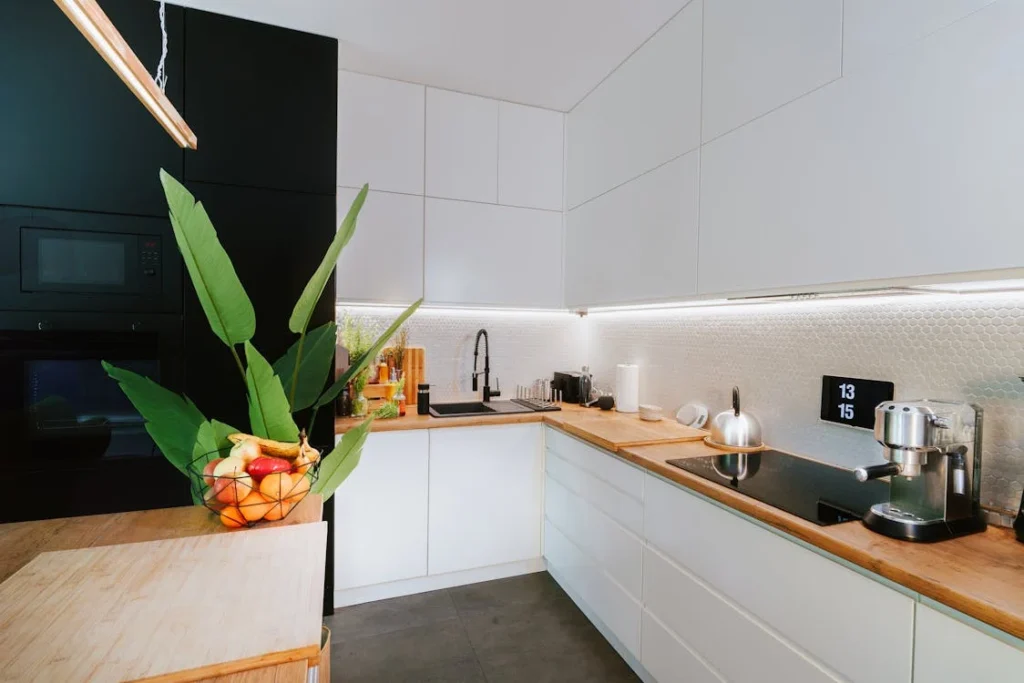
Use a Pale Neutral Palette
Influenced by Japanese design and the architecture of the Benedictine monks, Pawson outfitted the interior with light Danish brick walls, polished concrete floors, and Douglas fir timber ceilings complemented with low-slung furniture and soft drapes to keep the focus on the wrap-around views of rural Wales.
Happier life
Living with less doesn’t mean sacrificing joy. Insights from Social Indicators Research reveal that satisfaction with your standard of living helps define your life satisfaction. The philosophy of minimalism fosters gratitude for what you have and promotes happiness through intentional living. A minimalist life emphasizes relationships and experiences over excess stuff, creating a deeper sense of fulfillment and a more simple life.
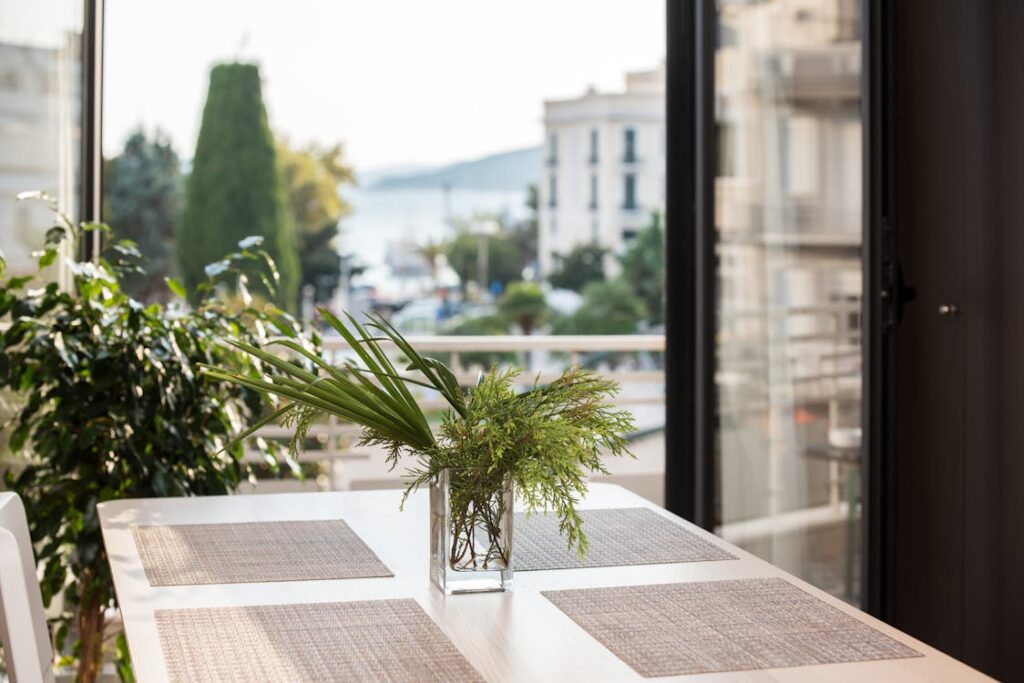
Easier to clean
It’s hard to clean a whole bunch of objects, or to sweep or vacuum around a bunch of furniture. The more stuff you have, the more you have to keep clean, and the more complicated it is to clean around the stuff. Think about how easy it is to clean an empty room compared to one with 50 objects in it. That’s an extreme example, of course, as I wouldn’t recommend you have an empty room, but it’s just to illustrate the difference.
Better budget
For many households, the cost of food, housing, and healthcare have increased exponentially faster than wages, according to a report from CBS that analyzes data from 2022. Buying less and selling items you no longer use can help you save.By downsizing and living with less, you’ll spend your money more wisely. The minimalist approach encourages you to focus on quality over quantity, helping you save and invest in experiences that bring you joy and long-term freedom. Realizing that you don’t need everything can free up resources for more meaningful experiences.
More money
Fewer items in your home means more money, says Becker, as you’ll be buying less and taking care of less. What’s more is that you’ll realize that your money can be used for better things than just buying possessions — including more experiences and quality time with family!

Embrace Symmetry
Embrace symmetry to create a minimalist feel in a more traditional living room. Interior designer Kara Mann placed identical white linen sofas opposite one another and flanked the fireplace with a pair of matching floor lamps in this neutral space ready for entertaining.
Don’t forget to have a life
We don’t remove clutter, reduce stress, and reject busyness to have a simple life. We do it to have a life. Don’t wait until your debt is paid off, or every room in your home is decluttered to start living. Minimalism invites you to be intentional about how you invest your time and energy, and how you want to fill your heart.
Realistically, everyone should be a minimalist
There are no credentials needed to call yourself a minimalist and no official governing entity on whether you’re doing minimalism right. But you don’t have to call yourself a minimalist either. The way I see it, minimalism isn’t my identity or some goal to achieve; it’s a tool Amy and I use as part of the framework of doing more of what matters.
Kitchen tips
The kitchen is one of the easiest places to reduce clutter or extraneous items. To start, consider the items you use most often. Go through your appliances, silverware, bowls, plates and tools and drop any that you don’t use. From there, further whittle down your collection by following the “best, favorite, necessary” rule. For instance, if you have three mixing bowls of the same size, consider which one is your favorite or works the best and eliminate the others.
For items like mugs, plates and silverware, try not to keep more than you need. When it comes to your appliances, try and find multi-use appliances. For example, a toaster oven that also has an air fry option or a food processor that also works as a blender.
Conclusion
Ultimately, minimalism is about making more room for what matters to you. Whether it’s about personal possessions and finding space in your home to take a breath. Or whether it’s about freeing yourself from financial burdens and other things that aren’t a necessity for your life.
What’s important is the focus on living a life full of things and actions that create joy. It just so happens that our stuff can get in the way of our capacity to connect with the things that matter. Our need for more stuff can also keep us working harder and harder just to make enough money to get by. The real value in minimalism is in reconnecting with what living well means for you. Figure out what you enjoy, keep those things and jettison the rest. Use the tips in this post to help.

